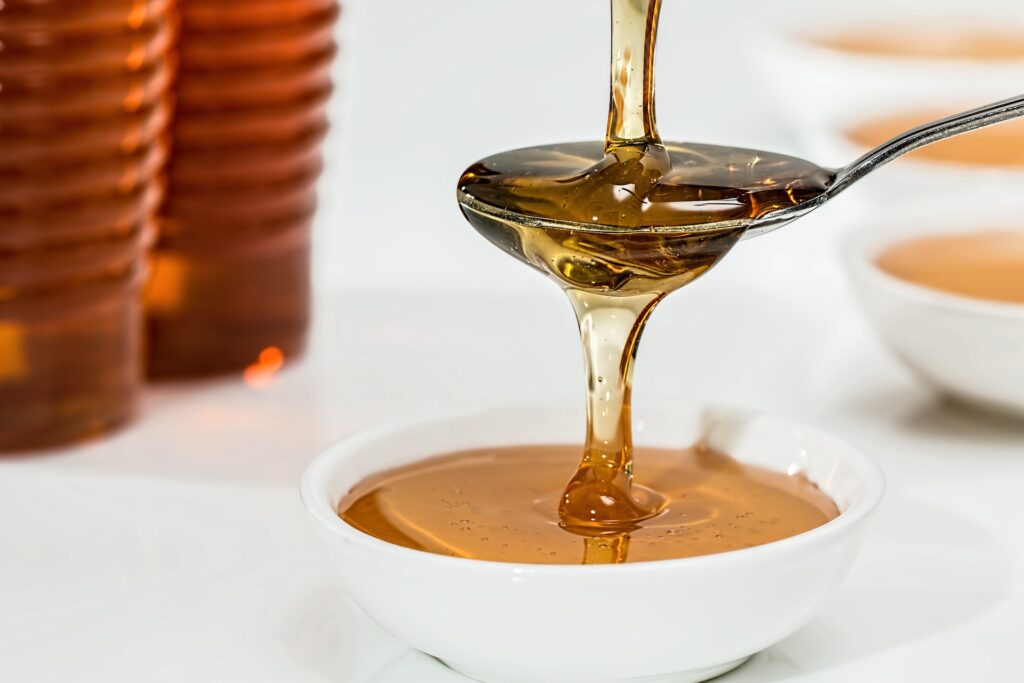
Honey is one of nature’s oldest remedies, used for centuries as a natural way to treat ailments and improve health. It is packed with antioxidants, vitamins, and minerals that can help boost your immune system and provide many other benefits. In this article, we will explore the many benefits of honey, explain how it can be used as a natural remedy for ten common ailments, and also discuss the different types of honey available.
Honey has been used by many cultures over the years for its healing properties, from ancient Egyptians to modern day Ayurvedic medicine practitioners. Thanks to its anti-inflammatory properties, antibacterial elements, and antiviral agents, it’s no wonder why honey has been used for so long as a natural remedy for various illnesses. In addition to its medicinal value, honey is also incredibly versatile in terms of flavor. Depending on where you purchase it from or what type you get, honey can range from mild and sweet to bold and tangy.
Table of Contents
Anti-Inflammatory Properties
Honey has been used for centuries as a natural remedy to reduce inflammation and treat a variety of ailments. It’s naturally antibacterial, antifungal, and antiviral properties make it an ideal choice for many health issues. The active compounds in honey, including flavonoids, phenolic acids and chrysin have been studied extensively for their anti-inflammatory effects.
Research has found that consuming small amounts of honey on a daily basis can help reduce inflammation and pain associated with arthritis and other inflammatory illnesses. Honey is also often used topically to treat skin inflammations such as eczema and psoriasis. It is important to remember that while honey can provide relief from inflammation, it should not be relied upon exclusively to treat any medical condition. Talk to your doctor before using honey as part of your health plan.
Antibacterial And Antiviral Elements
Honey is a natural product that has numerous health benefits and can be used to treat several ailments. It contains antibacterial and antiviral elements, which help fight off infections and speed up the healing process. The antibacterial effect of honey helps to kill bacteria that cause disease and infection in the body, while the antiviral element helps to inhibit the growth of viruses.
The type of honey used for medicinal purposes depends on its source as different types of honeys have different levels of antibacterial or antiviral properties. Manuka honey is one of the most popular types due to its high levels of active enzymes, which give it powerful antimicrobial effects. Other types of honey such as buckwheat, clover, and tupelo may also have beneficial effects on certain ailments like sore throats or skin irritations.
In addition to these medicinal uses, honey can also be used as a sweetener in many foods and beverages, providing an alternative to processed sugar with fewer calories. Not only is it healthier than refined sugars, but it also has a unique flavor that enhances recipes with its mild sweetness. Honey can be enjoyed in its raw form or used in cooking and baking recipes—it’s sure to add a special touch!

A Natural Remedy For 10 Common Ailments
Honey has been used for centuries as a natural remedy to treat a variety of ailments. Not only is it a hydrating and soothing ingredient, but it also boasts antiseptic, anti-inflammatory, and antioxidant properties. For this reason, it’s been used to treat everything from sore throats and colds to stomach issues and skin irritations. Here are 10 common ailments that can be helped by honey:
- Sore throat: Mixing honey with warm water or tea can help reduce the inflammation in your throat and provide relief from pain. It can also soothe your throat by coating it with a protective layer of liquid.
- Cold and flu: Honey is an excellent source of antioxidants, which helps fight off viruses that cause colds and flus. Additionally, its antibacterial properties make it useful for treating bacterial infections associated with these illnesses.
- Stomach issues: Honey is known for its ability to soothe upset stomachs due to its antispasmodic effects. It can also increase the production of digestive enzymes, helping digestion run more smoothly.
- Skin irritations: Honey is an effective topical treatment for many skin irritations such as eczema or psoriasis. Its antimicrobial properties help reduce inflammation while its moisturizing effects keep skin hydrated and healthy looking.
- Diarrhea: The antifungal and antibacterial properties of honey make it an effective remedy for diarrhea caused by gastrointestinal infections or food poisoning. The fructose content of some types of honey may also help absorb excess water in the intestines and firm up stool consistency.
- Allergies: Raw honey contains pollen particles from local plants that have immunomodulatory properties which may help strengthen your body’s tolerance to allergens found in the environment.
- Wounds: Its antiseptic properties make raw honey ideal for wound care due to its ability to draw moisture out of the wound while simultaneously providing a barrier against bacteria or fungal growth.
- Insomnia: Consuming raw honey can help induce sleepiness due to its natural sedative effect on the body, making it a great sleep aid for those who suffer from insomnia or other sleep disturbances.
- Coughs: Honey has expectorant properties that make it useful for treating dry coughs as well as relieving irritation in the throat due to coughing fits. It can also coat the throat with a protective layer which helps soothe discomfort when coughing at night time.
- Acne: Applying raw honey topically helps reduce acne lesions due to its anti-inflammatory and antibacterial effects which inhibit bacterial growth on the skin surface while reducing redness and swelling at the same time.
- Burns: Raw honey has cooling effects that can help soothe burns while simultaneously protecting them from infection-causing bacteria thanks to its antiseptic properties. Its moisturizing effects also aid in healing damaged tissue faster than usual without leaving behind scarring or discoloration marks on the skin’s surface.
Honey comes in many varieties ranging from light amber colored clover honey all the way to dark buckwheat honey packed full of minerals like iron, potassium, calcium, magnesium, zinc, phosphorous among others depending on where it was harvested from making this ancient remedy still relevant today!
Versatile Flavor Profile
Honey is not only known for its health benefits, but also for its unique flavor profile. From light and floral to dark and robust, there are a variety of different types of honey, each containing an unparalleled range of scents and tastes. Light honeys, such as clover, tend to be more delicate in flavor with sweet overtones of fruit. On the other hand, darker honeys like buckwheat offer more robust flavors with a robust depth that can range from spicy-smoky to earthy-nutty. No matter what type of honey you choose, it will provide your palate with a delicious experience that will leave you wanting more.
Whether you prefer the light and floral taste or the rich and robust flavors, one thing is certain; honey is one of nature’s most versatile natural sweeteners. It’s perfect on toast or oatmeal, in tea or coffee or baked into your favorite desserts – it can even be used as a marinade ingredient to add depth of flavor to savory dishes. What’s more? It’s all natural so you don’t have to worry about any added sugars or artificial flavoring – just pure deliciousness from mother nature herself!
How To Select And Store Honey
When selecting honey, it is important to consider the type of honey and its health benefits. Raw honey is the most beneficial since it contains many vitamins, minerals and enzymes that can be lost during commercial processing. Manuka honey is particularly beneficial with its anti-microbial and healing properties. Additionally, when choosing a particular honey, look for labels that indicate organic or unfiltered as these have more nutrients than processed varieties.
It is best to store honey in an airtight container at room temperature away from direct sunlight. This way, the nutrition content of the honey will remain intact until use. If stored properly, unopened honey can last indefinitely in a pantry or cupboard; however, once opened it should be consumed within 1-2 months for optimum quality and taste.
Frequently Asked Questions
How Much Honey Should I Consume Daily For Health Benefits?
When it comes to incorporating honey into your diet for health benefits, the general recommendation is to consume 1-2 tablespoons (15-30 mL) each day. Honey contains a variety of healing compounds like antioxidants, enzymes, and minerals that can help ward off disease and reduce inflammation. While consuming more than 2 tablespoons of honey daily is safe, you should be mindful of your overall caloric intake and other dietary considerations. Furthermore, since different types of honey offer varying levels of nutrients, make sure to select a high-quality option for maximum health benefits.
Does Honey Contain Any Allergens?
Honey does not contain any known allergens, making it a safe option for those with food allergies. However, it is important to note that some people may be allergic to pollen in honey, so if you experience an allergic reaction after consuming honey, you should stop and see a doctor. Additionally, raw honey may contain small amounts of bee pollen which could lead to an allergic reaction in some people. To reduce the risk of an allergic reaction, always buy honey from trusted brands and check the label for allergens before consuming.
Are There Any Potential Side Effects Of Consuming Too Much Honey?
Yes, consuming too much honey can have potential side effects. Eating large amounts of honey can lead to bloating, gas, nausea, and stomach cramping due to the high sugar content and fructose levels. Consuming too much honey can also cause diarrhea and an imbalance of blood sugar levels. Additionally, eating too much honey can increase risk for weight gain and cavities due to the added sugar. It’s important to remember that although honey has many health benefits when consumed in moderation, it is still a high-sugar food and should be consumed in moderation.
Is There A Difference Between Raw And Processed Honey?
Yes, there is a difference between raw and processed honey. Raw honey is made by extracting honey directly from the beehive, while processed honey goes through various stages of filtration and pasteurization to remove impurities. Raw honey is generally considered to be more nutritious, as it contains vitamins, minerals, enzymes, antioxidants and other beneficial compounds that are often lacking in processed varieties. Additionally, raw honey has a stronger flavor and aroma than processed honey.
Are There Any Health Benefits Associated With Eating Honeycomb?
Yes, there are numerous health benefits associated with eating honeycomb. The wax comb is rich in vitamins, minerals, and antioxidants that can help reduce inflammation, boost the immune system and improve gut health. Additionally, eating honeycomb has been linked to increased energy levels, improved sleep quality and better brain function. To make sure you get the most out of your honeycomb consumption it’s best to buy raw or organic varieties as they will have a higher concentration of the beneficial compounds.
Conclusion
In conclusion, honey is a natural remedy worth considering for a variety of ailments. It’s important to remember that consuming too much honey can have adverse effects on your health, so it’s best to talk to your doctor before adding large amounts of honey to your diet. Also, if you’re prone to allergies, it’s best to check with your doctor before consuming any type of honey. Ultimately, raw and processed honey offer different benefits and types of honey can be used in many ways. With the right amount and type of honey, you may reap the health benefits that this sweet treat has to offer.

